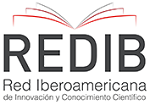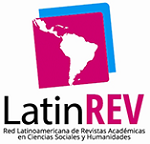Metacognition as a factor of empowerment and development of learning skills in students
DOI:
https://doi.org/10.15649/2346030X.3206Keywords:
learning skills, development, empowerment, metacognition, educationAbstract
The objective of this research article was to analyze the essential characteristics of metacognition present in the teaching processes of an educational institution, used as a didactic strategy for the development of learning skills in students. It was a mixed study, with field design and descriptive level, developed in a Colombian institution of secondary level and labor technical education located in the Cúcuta municipality, North Santander Department, Colombia. We worked with a population of 161 high school students and 25 teachers. The collection techniques were the survey for students and the interview for teachers. Regarding the questionnaire for students, a validated instrument from [1] was used, and for the interview, a script was designed and validated by expert judgment, based on the dimensions of [2]. For the student questionnaire, a Cronbach's Alpha of 0.873 was calculated, very comparable with the validated original. The study was divided into two stages: the handling of the elements of metacognition in the learning processes by the students; and the incorporation of metacognition as a strategy for the development of competencies by teachers. In the results, it was found that, from the perspective of the students, a latent weakness in learning based on goals and objectives, personal learning planning, and repetition or change of strategy to improve learning. Teachers have a high determination of metacognitive processes, with the contribution of detecting weaknesses that can hinder student metacognition in their teaching processes, being challenges for the improvement of teaching and learning processes based on metacognition.
References
S Jaramillo y S Osses, “Validación de un Instrumento sobre Metacognición para Estudiantes de Segundo Ciclo de Educación General Básica”, Estudios pedagógicos, vol. 38, n° 2, 117-131. 2012. http://dx.doi.org/10.4067/S0718-07052012000200008.
J Moreno, C Arbulú, L Montenegro, “La metacognición como factor de desarrollo de competencias en la educación peruana”, Revista Educación, vol. 46, n° 1, pp. 1-18, 2022. https://www.redalyc.org/articulo.oa?id=44068165006.
M Mateos, “Metacognición y educación”, Argentina: Aique Grupo Editorial. 2001.
M Carretero, “Metacognición y educación”, Buenos Aires: Aique. 2021.
V Jiménez, “Metacognición y Comprensión de la lectura: evaluación de los componentes estratégicos (Procesos y variables) mediante la elaboración de una escala de conciencia lectora (ESCOLA)”. 2004. http://www.unne.edu.ar/institucional/documentos/lecturayescritura08/jimenez.pdf.
D Argüelles, “Estrategias para promover procesos de aprendizaje autónomo”, Bogotá: Alfaomega Colombiana S.A. 2007.
S Tobón, “Formación integral y competencias”, México: Editorial Macro. 2015.
D Verano, S González, A Bolívar, M Fernández y I Galván, “Valoración de la competencia de comunicación oral de estudiantes universitarios a través de una rúbrica fiable y válida”, Revista Brasileira de Educação, vol. 21, n° 64, pp. 39-60. 2016. https://doi.org/10.1590/S1413-24782016216403.
J Tejera y M Cardoso, “Tratamiento de la habilidades comunicativas en el contexto universitario”, Revista Universal y Sociedad, vol. 7, n° 3, pp. 168-172. 2005. http://scielo.sld.cu/scielo.php?script=sci_arttext&pid=S2218-36202015000200024.
M Bonilla C Díaz, “La metacognición en el aprendizaje de una segunda lengua: Estrategias, instrumentos y evaluación”, Revista Educación, vol. 42, n° 2, pp. 4-8. 2018. http://www.redalyc.org/articulo.oa?id=44055139018.
C Monereo, A Badia, M Baixeras, E Boadas, M Castell’o y I Guevara, “Ser estratégico y autónomo aprendiendo, Graó. 2001.
D Di Pardo, “Going Beyond Words and Actions: Teaching Metacognitive and Soft Skills to ESP Communication Students at the Dawn of the Fourth Industrial Revolution”, Esp teaching and teacher education: current theories and practices. 2019.
C Soto, “Metacognición, cambio conceptual y Enseñanza de las Ciencias”, Bogotá: Didáctica Magisterio. 2002.
R Hernández, C Fernández y P Baptista, “Metodología de la investigación”, México: Mc Graw Hill, 2010.
F Arias, “El proyecto de investigaciones. Guía para la elaboración”, Caracas: Episteme, 2006.
M Tamayo, “El proceso de la investigación científica”, México: Editorial Limusa. 2004.
Ministerio de Salud y Protección Social, Resolución 8430 de 1993. Bogotá: 1993. Disponible en: https://www.hospitalsanpedro.org/images/Comite_Investigacion/Resolucion_8430_de_1993.pdf.
Strauss, A. y Corbin, J. (2012). Bases de la investigación cualitativa. Técnicas y procedimientos para desarrollar la teoría fundamentada. Antioquia: Universidad de Antioquia.
Ministerio de Educación Nacional, “Metacognición: Un camino para aprender a aprender”, Bogotá. 2020. https://educacion.gob.ec/wp-content/uploads/downloads/2020/10/Pasa-la-Voz-Octubre-2020.pdf.
M Peronard, N Crespo y M Velásquez, “La evaluación del conocimiento metacomprensivo en alumnos de educación básica”, Revista Signos, vol. XXXIII, n° 47, pp. 168-180. 2000. https://www.scielo.cl/scielo.php?script=sci_arttext&pid=S0718-09342000000100013.
M Tesouro, “La metacognición en la escuela: la importancia de enseñar a pensar”, EDUCAR, vol. 35, n° 1, pp. 135-144. 2005. https://www.redalyc.org/pdf/3421/342130824013.pdf.
H Paz, “¿Cómo desarrollar la metacognición en la educación superior mediante la resolución de problemas?, Ingeniería e Investigación, vol.31, no.1, 2011. http://www.scielo.org.co/scielo.php?script=sci_arttext&pid=S0120-56092011000100022.
Downloads
Published
How to Cite
Issue
Section
Altmetrics
Downloads
License
Copyright (c) 2023 AiBi Journal of Research, Administration and Engineering

This work is licensed under a Creative Commons Attribution 4.0 International License.
The journal offers open access under a Creative Commons Attibution License

This work is under license Creative Commons Attribution (CC BY 4.0).












